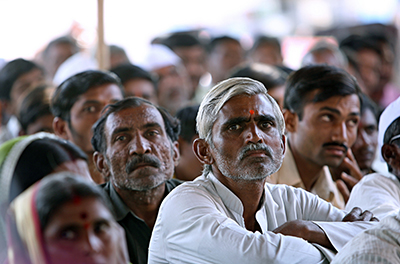Enhancing Capacity to Improve Social Protection Strategies in Delhi

Summary
The Mission Convergence (MC) or “Samajik Suvidha Sangam” in Hindi is an initiative by the Government of the National Capital Territory of Delhi (GNCTD) that aims to alleviate poverty and improve government social programs. GNCTD officials needed help and information on how to incorporate multiple poverty reduction programs into an improved program. They looked to Brazil’s Bolsa Familia Program (BFP), the largest conditional cash transfer (CCT) program in the developing world, as a potential model.1 The World Bank helped bring together key development officials and government development planners from India and Brazil to strengthen the design of the MC in the Delhi Territory.
The study tour of Brazil helped Indian officials gather information and best-practice techniques for social program implementation. Learning about the BFP provided guidance on the future policies and strategies of the MC program, and initiated a high-level discussion among policymakers on the merits of targeting and conditional incentive structures.
“Sensitivity towards the community is very critical for a program like Mission Convergence…[which] is all about bringing change in the quality of life of the marginalized and vulnerable and not just distributing pension and scheme benefits,” said Mr. Rakesh Mehta, Delhi Government Chief Secretary.
Most important, the exchange raised the confidence of the MC officials, who used their new knowledge to design a pilot CCT project in Delhi.
Beneficiaries / Participants
Mission Convergence (MC) is a GNCTD initiative that seeks to consolidate multiple poverty reduction programs. The goal is to improve both access to and the outcomes of the social programs.
Officials in India tasked with developing the MC looked to the Bolsa Familia Program (BFP) in Brazil for inspiration. The largest Conditional Cash Transfer (CCT) program in the developing world, BFP was created in 2003 to integrate four CCT programs into a single program under Brazil’s new Ministry of Social Development.2 BFP is a relevant model for India since Brazil is also governed under a similarly decentralized system.
The World Bank helped organize a knowledge exchange among MC administrators, Indian officials, and development planners in Brazil to improve MC program design, set an institutional framework, establish systems for monitoring and evaluation (M&E), and address complaints. The Indians were also interested in learning how to build a knowledge platform for sharing best social program implementation practices among the states.

 China
China Colombia
Colombia Denmark
Denmark India
India Indonesia
Indonesia Mexico
Mexico Russian Federation
Russian Federation Spain
Spain United Kingdom
United Kingdom